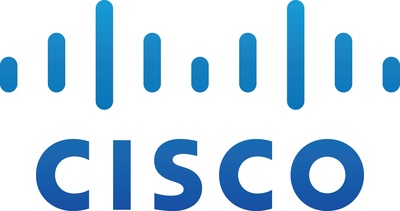Cisco's 2024 AI Readiness Index: Urgency Rises, Readiness Falls
Cisco's 2024 AI Readiness Index reveals a widening gap between AI deployment urgency and organizational readiness. While 98% of companies report increased urgency to deploy AI, only 13% are fully prepared to implement their AI strategies, down from 14% last year. The study, involving 8,000 organizations, shows that 85% believe they have less than 18 months to demonstrate AI impact. Key infrastructure challenges include only 21% having necessary GPUs for AI demands and 30% having adequate data protection capabilities. Companies plan to allocate 30% of IT budgets to AI in the next five years, despite current implementations falling short of expectations.
L'Indice di Prontezza all'IA 2024 di Cisco rivela un divario crescente tra l'urgenza di implementare l'IA e la preparazione delle organizzazioni. Sebbene il 98% delle aziende riporti un aumento dell'urgenza nell'adozione dell'IA, solo il 13% è completamente pronto a implementare le proprie strategie di IA, in calo rispetto al 14% dell'anno scorso. Lo studio, che ha coinvolto 8.000 organizzazioni, mostra che l'85% crede di avere meno di 18 mesi per dimostrare l'impatto dell'IA. Le principali sfide infrastrutturali includono solo il 21% delle aziende che dispone di GPU necessarie per le esigenze dell'IA e il 30% che ha capacità adeguate di protezione dei dati. Le aziende pianificano di destinare il 30% dei budget IT all'IA nei prossimi cinque anni, nonostante le attuali implementazioni siano inferiori alle aspettative.
El Índice de Preparación para la IA 2024 de Cisco revela una brecha creciente entre la urgencia de desplegar la IA y la preparación organizacional. Mientras que el 98% de las empresas informa una mayor urgencia por implementar la IA, solo el 13% está completamente preparado para llevar a cabo sus estrategias de IA, una disminución del 14% respecto al año anterior. El estudio, que involucra a 8,000 organizaciones, muestra que el 85% cree tener menos de 18 meses para demostrar el impacto de la IA. Los desafíos clave en infraestructura incluyen que solo el 21% cuenta con las GPU necesarias para las demandas de la IA y el 30% tiene capacidades adecuadas de protección de datos. Las empresas planean destinar el 30% de sus presupuestos de IT a la IA en los próximos cinco años, a pesar de que las implementaciones actuales no cumplen con las expectativas.
시스코의 2024 인공지능 준비 지수는 인공지능 배치 긴급성과 조직 준비성 간의 격차가 커지고 있음을 보여줍니다. 98%의 기업이 인공지능을 배치할 필요성이 증가했다고 보고하지만, 오직 13%만이 자사의 인공지능 전략을 완전히 준비하고 있으며, 이는 작년의 14%에서 감소한 수치입니다. 8,000개의 조직이 참여한 이 연구는 85%가 인공지능의 영향을 입증할 수 있는 시간이 18개월 이하라고 믿고 있음을 보여줍니다. 주요 인프라 과제에는 인공지능 수요에 필요한 GPU를 보유한 기업이 21%에 불과하며, 30%는 적절한 데이터 보호 기능을 갖추고 있습니다. 기업들은 향후 5년 동안 IT 예산의 30%를 인공지능에 할당할 계획이지만, 현재의 구현이 기대에 미치지 못하고 있습니다.
L'Indice de Préparation à l'IA 2024 de Cisco révèle un écart croissant entre l'urgence du déploiement de l'IA et la préparation des organisations. Bien que 98 % des entreprises rapportent une augmentation de l'urgence de déployer l'IA, seulement 13 % sont totalement prêtes à mettre en œuvre leurs stratégies d'IA, en baisse par rapport à 14 % l'année dernière. L'étude, impliquant 8 000 organisations, montre que 85 % pensent avoir moins de 18 mois pour démontrer l'impact de l'IA. Les principaux défis d'infrastructure incluent seulement 21 % ayant les GPU nécessaires pour les exigences de l'IA et 30 % ayant des capacités adéquates de protection des données. Les entreprises prévoient d'allouer 30 % de leurs budgets informatiques à l'IA au cours des cinq prochaines années, malgré le fait que les mises en œuvre actuelles ne répondent pas aux attentes.
Ciscos KI-Bereitschaftsindex 2024 zeigt eine wachsende Kluft zwischen der Dringlichkeit der KI-Implementierung und der organisatorischen Bereitschaft. Während 98 % der Unternehmen einen zunehmenden Bedarf an der Einführung von KI melden, sind nur 13 % vollständig bereit, ihre KI-Strategien umzusetzen, ein Rückgang von 14 % im letzten Jahr. Die Studie, an der 8.000 Organisationen beteiligt waren, zeigt, dass 85 % glauben, dass sie weniger als 18 Monate Zeit haben, um die Auswirkungen der KI zu demonstrieren. Wichtige Infrastrukturherausforderungen umfassen, dass nur 21 % über die notwendigen GPUs für die Anforderungen der KI verfügen und 30 % über adäquate Datenschutzmöglichkeiten verfügen. Unternehmen planen, in den nächsten fünf Jahren 30 % ihrer IT-Budgets für KI einzuplanen, obwohl die aktuellen Implementierungen hinter den Erwartungen zurückbleiben.
- Companies plan to double AI investment to 30% of IT budgets in next 5 years
- 42% of respondents achieved advanced security deployment for AI
- 40% report advanced infrastructure deployment readiness
- Overall AI readiness declined from 14% to 13% year-over-year
- Only 21% have necessary GPUs for current and future AI demands
- Only 30% have adequate data protection capabilities for AI
- 80% report data preprocessing inconsistencies for AI projects
- Board receptiveness to AI decreased from 82% to 66%
- 24% report insufficient in-house talent for AI deployment
Insights
The AI Readiness Index reveals concerning trends for Cisco's enterprise customers, with only
The critical infrastructure shortfalls highlighted - particularly that only
However, the widespread unpreparedness in security, data management and infrastructure indicates potential delays in enterprise AI adoption cycles, which could impact the timing of Cisco's AI-related revenue growth. The declining cultural readiness and talent gaps may further slow implementation timelines.
This report provides valuable market intelligence about enterprise AI adoption trends. The finding that
Key growth opportunities exist in cybersecurity (where
The declining readiness metrics across multiple categories suggest enterprises will need comprehensive solutions and services, not just point products. This aligns well with Cisco's full-stack offering strategy but highlights the need for simplified deployment and integration capabilities.
Second annual report shows the race to get AI right is on, with a critical focus on networking infrastructure
News Summary:
- Leaders feel the pressure;
98% report increased urgency to deliver on AI and85% believe they have less than 18 months to act. - Networks are not equipped to meet AI workloads; only
21% of companies report having the necessary GPUs to meet current and future AI demands. - Only
13% say they are fully ready to capture AI's potential – down from14% last year.
Most notably, the report highlights a huge chasm between the urgency companies feel to deploy AI and their readiness to do so. Nearly all companies (
"Eventually there will be only two kinds of companies: those that are AI companies, and those that are irrelevant. AI is making us rethink power requirements, compute needs, high-performance connectivity inside and between data centers, data requirements, security and more," said Jeetu Patel, Chief Product Officer at Cisco. "Regardless of where they are on their AI journey, organizations need to be preparing existing data centers and cloud strategies for changing requirements, and have a plan for how to adopt AI, with agility and resilience, as strategies evolve."
Key Findings
Alongside the finding that only
- URGENCY: Companies feel they only have 18 months to showcase the impact of AI. Nearly all (
85% ) companies say they only have 18 months to start demonstrating the impact of AI. More than half (59% ) give it only 12 months. - STRATEGY: Companies agree that AI cannot be deployed effectively in an organization without a clear strategy. Cybersecurity is the top priority for AI deployment with
42% of respondents having achieved advanced security deployment. Infrastructure follows at40% , and data analysis and data management tied for third at39% . - INVESTMENT: Companies are doubling down on AI despite lukewarm results from current AI projects. In the next five years, respondents anticipate that roughly
30% of IT budgets will be dedicated to AI, nearly double what it is today. Close to half of companies say AI implementations across top priorities have fallen short of expectations this year, yet59% believe the impact from AI investments will surpass expectations after five years. - INFRASTRUCTURE: Networks are not equipped to meet AI workloads. The largest decline was in infrastructure readiness, with gaps in compute, data center network performance, and cybersecurity, amongst other areas. Only
21% of organizations have the necessary GPUs to meet current and future AI demands and30% have the capabilities to protect data in AI models with end–to–end encryption, security audits, continuous monitoring and instant threat response. - DATA: Companies report feeling less ready to manage data effectively for AI initiatives, compared to a year ago. Nearly a third (
32% ) of respondents report high readiness from a data perspective to adapt, deploy and fully leverage AI technologies. Most companies (80% ) report inconsistencies or shortcomings in the pre-processing and cleaning of data for AI projects. This remains almost as high as a year ago (81% ). Additionally,64% report that they feel there is room for improvement in tracking the origins of data. - TALENT: A lack of skilled talent is a top challenge across infrastructure, data, and governance, underscoring the critical need for skilled professionals to drive AI initiatives. Only
31% of organizations claim their talent is at a high state of readiness to fully leverage AI. Twenty-four percent say their organizations are under resourced in terms of in-house talent necessary for successful AI deployment. Twenty-four percent of all respondents also say that there is not enough talent available in their sector with the right skillsets to address the growing demand for AI. - GOVERNANCE: Effective AI governance is more crucial than ever, yet respondents feel that it has become more difficult. When asked about the comprehensiveness of their organizations' AI policies and protocols,
31% of the organizations said they are highly comprehensive. Fifty-one percent of respondents identified "the lack of talent with expertise in AI governance, law and ethics in the market" as a challenge in improving their readiness from the governance perspective. - CULTURE: There has been a noticeable reduction in cultural readiness to embrace AI. A lack of receptiveness to AI's changes has contributed to the decline in cultural readiness: boards have become less receptive to embracing the transformative power of AI, with
66% of them being highly or moderately receptive, down from82% last year while30% of organizations report employees are limited in their willingness to adopt AI or are outright resistant.
Cisco AI Readiness Index:
The Cisco AI Readiness Index is conducted by an independent third-party and based on a double-blind survey of 7,985 senior business leaders, with responsibility for AI integration and deployment at organizations across 30 markets with 500 or more employees. The Index assessed respondents' AI readiness across six key pillars: strategy, infrastructure, data, talent, governance and culture.
Companies were examined on 49 different metrics across these six pillars to determine a readiness score for each, as well as an overall readiness score for the respondents' organization. Each indicator was assigned an individual weightage based on its relative importance to achieving readiness for the applicable pillar. Based on their overall score, Cisco has identified four groups at different levels of organizational readiness – Pacesetters (fully prepared), Chasers (moderately prepared), Followers (limited preparedness) and Laggards (unprepared).
Additional Resources:
About Cisco
Cisco (NASDAQ: CSCO) is the worldwide technology leader that securely connects everything to make anything possible. Our purpose is to power an inclusive future for all by helping our customers reimagine their applications, power hybrid work, secure their enterprise, transform their infrastructure, and meet their sustainability goals.
Discover more on The Newsroom and follow us on X (formerly Twitter) at @Cisco.
Cisco and the Cisco logo are trademarks or registered trademarks of Cisco and/or its affiliates in the
Media Contacts:
Ramona Redlingshafer
rredling@cisco.com
![]() View original content to download multimedia:https://www.prnewswire.com/news-releases/ciscos-2024-ai-readiness-index-urgency-rises-readiness-falls-302309414.html
View original content to download multimedia:https://www.prnewswire.com/news-releases/ciscos-2024-ai-readiness-index-urgency-rises-readiness-falls-302309414.html
SOURCE Cisco Systems, Inc.








